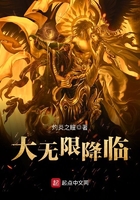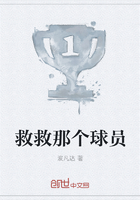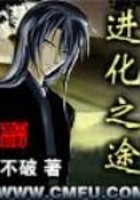In the preceding chapter I wrote of Russia's many wants, and of the processes visibly at work, tending to make her condition worse and not better.But I wrote of things, not of people.I wrote of the shortage of this and of that, but not of the most serious of all shortages, which, while itself largely due to those already discussed, daily intensifies them, and points the way to that further stage of decay which is threatened in the near future in Russia, and, in the more distant future in Europe.I did not write of the shortage deterioration of labor.
Shortage of labor is not peculiar to Russia.It is among the postwar phenomena common to all countries.The war and its accompanying eases have cost Europe, including Russia, an enormous number of able- bodied men.Many millions of others have lost the habit of regular work.German industrialists complain that they cannot get labor, and that when they get it, it is not productive.I heard complaints on the same subject in England.But just as the economic crisis, due in the first instance to the war and the isolation it imposed, has gone further in Russia than elsewhere, so the shortage of labor, at present a handicap, an annoyance in more fortunate countries, is in Russia perhaps the greatest of the national dangers.Shortage of labor cannot be measured simply by the decreasing numbers of the workmen.If it takes two workmen as long to do a particular job in 1920 as it took one man to do it in 1914, then, even if the number of workman has remained the same, the actual supply of labor has been halved.And in Russia the situation is worse than that.For example, in the group of State metal-working factories, those, in fact which may be considered as the weapon with which Russia is trying to cuther way out of her transport difficulties, apart from the fact that there were in 19l6 81,600 workmen, whereas in 1920 there are only 42,500, labor has deteriorated in the most appalling manner.In 1916 in these factories 92 per cent.of the nominal working hours were actually kept; in 1920 work goes on during only 60 per cent.of the nominal hours.It is estimated that the labor of a single workman produces now only one quarter of what it produced in 1916.To take another example, also from workmen engaged in transport, that is to say, in the most important of all work at the present time: in the Moscow junction of the Moscow Kazan Railway, between November 1st and February 29th (1920), 292 workmen and clerks missed 12,048 working days, being absent, on in average, forty days per man in the four months.In Moscow passenger-station on this line, 22 workmen missed in November 106 days, in December 273, in January 338, and in February 380; in an appallingcrescendo further illustrated by the wagon department, where 28 workmen missed in November 104 days and in February 500.In November workmen absented themselves for single days.In February the same workmen were absent for the greater part of the month.The invariable excuse was illness.Many cases of illness there undoubtedly were, since this period was the worst of the typhus epidemic, but besides illness, and besides mere obvious idleness which no doubt accounts for a certain proportion of illegitimate holidays, there is another explanation which goes nearer the root of the matter.Much of the time filched from the State was in all probability spent in expeditions in search of food.In Petrograd, the Council of Public Economy complain that there is a tendency to turn the eight-hour day into a four-hour day.Attempts are being made to arrest this tendency by making an additional food allowance conditional on the actual fulfilment of working days.In the Donetz coal basin, the monthly output per man was in 1914 750 poods, in 1916 615 poods, in 1919 240 poods (figures taken from Ekaterinoslav Government), and in 1920 theoutput per man is estimated at being something near 220 poods.In the shale mines on the Volga, where food conditions are comparatively good, productivity is comparatively high.Thus in a small mine near Simbirsk there are 230 workmen, of' whom 50to 60 are skilled.The output for the unskilled is 28.9 poods in a shift, for the skilled 68.3.But even there 25 per cent.of the workmen are regular absentees, and actually the mine works only 17 or 18 days in a month, that is, 70 per cent.of the normal number of working days.The remaining 30 per cent.of normal working time is spent by the workmen in getting food.Another small mine in the same district is worked entirely by unskilled labor, the wokers being peasants from the neighboring villages.In this mine the productivity per man is less, but all the men work full time.They do not have to waste time in securing food, because, being local peasants, they are supplied by their own villages and families.In Moscow and Petrograd food is far more difficult to secure, more time is wasted on that hopeless task; even with that waste of time, the workman is not properly fed, and it cannot be wondered at that his productivity is low.















